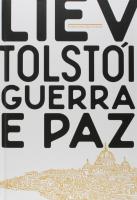The Stranger: Summary and Analysis of Albert Camus's Book
Abroad (L'Étranger) is a book by Albert Camus published in 1942 and is one of the most widely read works of him in the world.
The novel introduces us to Meursault, a Franco-Algerian man who is passive and oblivious to the world around him. After committing a crime, he does not experience regret, nor does he flinch from the death of his mother. The protagonist's attitude clashes with social conventions and leads him to his own death sentence.
The work, due to its theme, is framed within the philosophy of the absurd and has also been studied within existentialist thought, despite its author's refusal to belong to this current. Let's see how he is present through a summary and analysis of the book.
Resume
Part one: the crime
Meursault is a man who lives in Algiers. One day he receives the news of the death of his mother, who was admitted to a nursing home. But the protagonist does not seem to be affected.
When he arrives at the place, he talks to the director of the asylum, who is surprised by the protagonist's passivity in the face of the events. Meursault also does not wish to see the body of his mother.
The next day, during her funeral, the only one who accompanies Meursault is an old friend of his mother, who is considerably affected.
After the burial, what seems to worry Meursault the most is arriving in Algiers to rest.
Once in Algiers, the protagonist meets Marie Cardona, a co-worker. The girl is surprised to learn of the death of her mother and to see that Meursault does not feel sadness.
One day, when returning from work, the protagonist meets his neighbor Raymond, who tells him how he beat his lover and asks Meursault to write a letter to help her get back with he.
On the next date with Meursault, Marie asks him if he loves her and the protagonist says no. They hear voices in Raymond's house, who is mistreating his lover. When the police arrive, they take Raymond away. Meursault decides to defend his neighbor to the police when they ask him to.
Raymond invites Meursault to spend a weekend at a friend's cabin. There they meet the brother of Raymond's lover. After an altercation, Raymond is injured. Meursault becomes a murderer when he kills the man who assaulted his friend.
Part two: the death sentence
The second part of the novel develops the criminal process and the interrogation of the protagonist after being arrested for murder.
Both the judge and his lawyer admire each other for the protagonist's apathy and lack of sadness at the death of his mother. The witnesses do not benefit the acquittal of the protagonist. He then he is considered guilty and sentenced to death. The protagonist wishes to change his destiny although, finally, he resigns himself and ends up accepting his death.
Analysis
The book Abroad It is divided into two parts, each one made up of five chapters. The play is narrated in the first person with a sparing style, in which the protagonist recounts the events in a simple and transparent way.
The novel is studied from the absurd or absurd, a fact that turns out to be the central theme of the work. This philosophy is governed by skepticism, which doubts everything that cannot be evidenced. The feeling of the absurd emanates from the book through its protagonist, but how does he do it?
Meursault as representative of the absurd
Meursault is a character whose life is governed by a succession of mechanical and routine moments, he is a man to whom nothing seems to matter and who seems to have learned to relativize everything that happens to his around.
The protagonist contemplates the world without considering finding meanings. Indifference to what happens is his way of being in the world. The absurd man is the one who does not question, does not seek explanations and remains impassive in the face of what happens around him.
Precisely this makes Meursault a strange man in the midst of all those who affirm that life has meaning, despite the faith and hope that those around him have. He seems indolent even of his own existence, oblivious to established values and morals, he is a man who has understood the nonsense of life and who does not seek to find meaning in something that does not he has.
This shows not only in his actions, but also in his words. From the beginning the tone used is cold and distant, this helps the reader not to empathize with the character and assess the events from the disaffection. The first sentence of the book is an example of this, where it shows the insensitivity to an event such as the death of a loved one, his mother:
Today mom died. Or maybe yesterday, I don't know. I have received a telegram from the nursing home: “Mother deceased. Burial tomorrow. I feel your grief". Nothing wants to say. Maybe it was yesterday.
Acceptance of the nonsense of life
Meursault, with his attitude to reality, reveals to us that life means nothing. The acceptance of the nonsense of life is the starting point of it and, at the same time, this is what makes you enjoy the pleasures of life.
The protagonist, unlike other characters who are governed by values and hope, has assumed the absurdity of life and also the imminent arrival of death. This fact can be appreciated when he is in prison and receives a visit from a priest who comes to speak to him about the afterlife.
So Meursault states in relation to the words and beliefs of the chaplain:
He seemed so confident. Yet none of his certainties was worth a woman's hair. He wasn't even certain that he was alive because he lived like a dead man. I seemed to have empty hands. But he was sure of me, sure of everything, more sure than him, sure of my life and this death that was to come.
The protagonist is immersed in a reality governed by a scale of values that judges what is right and what is wrong. But, how does this attitude towards reality affect the character? How does the society that surrounds it assume it?
The society that condemns
Abroad it shows the absurdity of social convictions. For which the protagonist ends up being judged because, in the judicial process, he has decided not to lie so as not to "conform" to what society considers "correct". He has maintained his truth regarding the death of his mother, to whom he has not cried as everyone expects, and has not shown his own reactions during the grieving process.
The reality is that the protagonist is singled out for lack of sensitivity to the death of his mother. The judge tries to make the protagonist show "regret" or bring out his feelings.
Finally, Meursault is sentenced to death, the accusation focuses on the personality of the accused and not on the murder he has committed. Meursault ends up assuming his condemnation and acknowledging the world's indifference.
Why is it titled “El Extranjero”?
In the etymology "foreigner" derives from the old French "estrangier", which means strange and from the Latin extraneus.
What does this title word imply to the book of Camus? Meursault is a character whose background is complex for the reader to understand, it is difficult to follow his logic. We see how it seems alien to his own life.
The author himself, Camus, declared the following statement to present the book: "In our society, a man who does not cry at the funeral of his mother runs the risk of being sentenced to death."
The title and its meaning is also directly related to the war and postwar context. After all, the work is a reflection of a society lacking direction.
After World War II he remains an atmosphere of hopelessness and frustration in Europe. Albert Camus, immersed in this context, creates this character who represents the lack of values of the time, a character who is characterized by passivity in the face of life but that, finally, lead him to a tragic destiny for being a “stranger” in the middle of the world that surrounds him, whom he cannot find sense.
Main characters
- Meursault: is the narrator and protagonist of the book. She stands out for her coldness and indifference to the tragic events that occur in her life and she never expresses her thoughts.
- Marie: She is Meursault's co-worker and she falls in love with him after several dates, to the point of wanting to marry him.
- Raymond: he is Meursault's neighbor and also becomes his friend. He is violent and mistreats his mistress.
- Salamano: he is an old man who is characterized by his bad mood. He lives on the same block as the protagonist and has a dog that he continually insults and abuses.
- Masson: he is Raymond's friend, who invites him to spend the weekend at a beach hut.
- The Arab: he is the brother of Raymond's mistress, whom Meursault murders.
- Judge: he is in charge of handling the murder case.
About Albert Camus

Albert Camus was a French-Algerian novelist, essayist, journalist and philosopher, who was born into a humble family and was orphaned during the First War World.
He started writing at a very young age and began to train in philosophy at the University of Algiers. Abroad, published in 1942, is the work that made him known. Albert Camus has often been studied from the absurd and existentialist philosophy, from which he intended to distance himself.
Among his most outstanding works are:
- Abroad (1942)
- The myth of Sisyphus (1942)
- Plague (1947)
- The fall (1956)
If you liked this article, you may also be interested in: Existentialism: characteristics, authors and works

